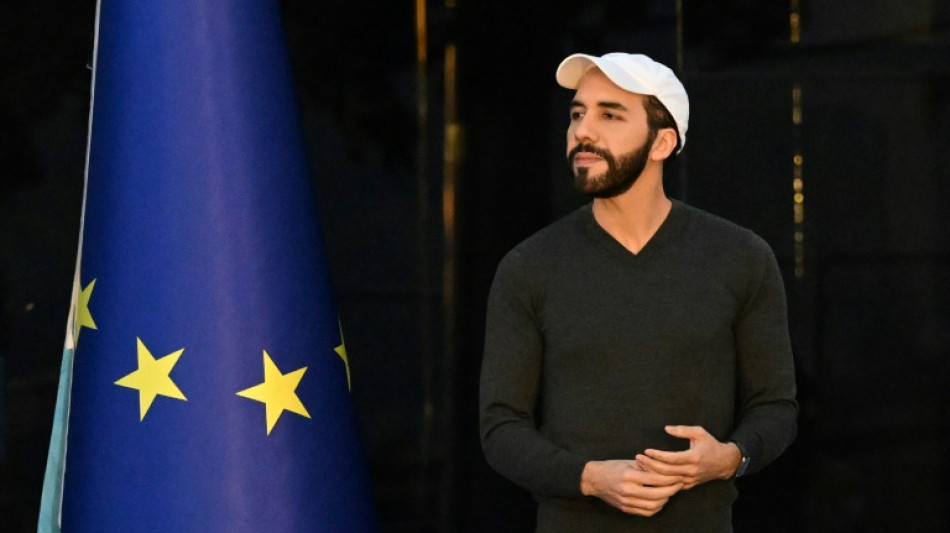
-
 PSG are deserving Champions League finalists, says Luis Enrique
PSG are deserving Champions League finalists, says Luis Enrique
-
Bolsonaro leads rally at site of 2023 Brazil insurrection

-
 Mexico City prepares to welcome millions for 2026 World Cup
Mexico City prepares to welcome millions for 2026 World Cup
-
Putin's order for three-day truce with Ukraine enters force

-
 Defiant Arteta says Arsenal were best team in Champions League despite painful exit
Defiant Arteta says Arsenal were best team in Champions League despite painful exit
-
US envoy Witkoff briefs UN Security Council on Gaza, other issues
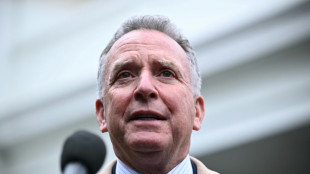
-
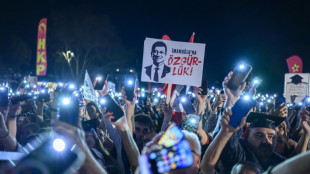 Tens of thousands take part in Istanbul rally for jailed mayor
Tens of thousands take part in Istanbul rally for jailed mayor
-
Pakistan warns will 'avenge' deaths from Indian strikes
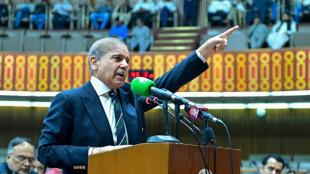
-
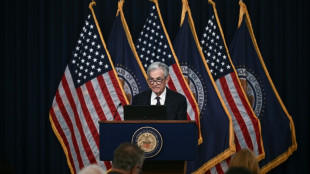 US Fed pauses rate cuts again and warns of inflation, unemployment risks
US Fed pauses rate cuts again and warns of inflation, unemployment risks
-
New accuser testifies against Weinstein in New York retrial
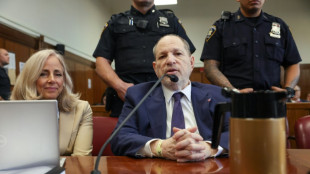
-
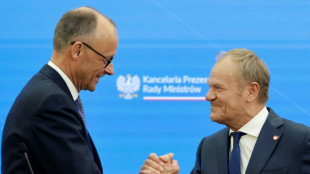 Merz supports easing EU fiscal rules to boost defence spending
Merz supports easing EU fiscal rules to boost defence spending
-
PSG finish off Arsenal to reach Champions League final

-
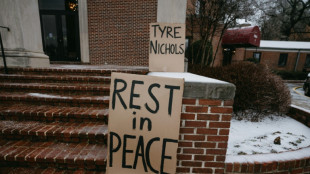 Ex-US police officers acquitted in beating death of Black motorist
Ex-US police officers acquitted in beating death of Black motorist
-
Curry ruled out for a week in NBA playoff blow to Warriors

-
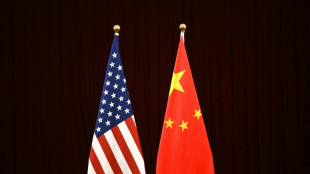 Global stocks mixed as markets eye weekend US-China trade talks
Global stocks mixed as markets eye weekend US-China trade talks
-
Fear and loathing: Trump film threat shocks Latin America

-
 Postecoglou hits back at Wenger over 'crazy' Spurs claim
Postecoglou hits back at Wenger over 'crazy' Spurs claim
-
US Fed pauses cuts again and flags inflation, unemployment risks
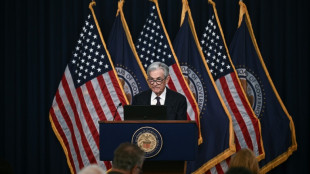
-
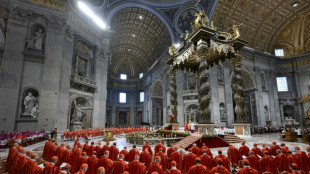 Black smoke: Cardinals fail to elect new pope on first try
Black smoke: Cardinals fail to elect new pope on first try
-
Web archivists scrambling to save US public data from deletion
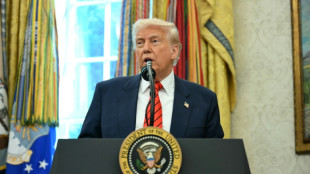
-
 Google shares plunge after Apple executive's court testimony
Google shares plunge after Apple executive's court testimony
-
Perrier ordered to remove water filters

-
 PGA of America to give away 3,000 Ryder Cup tickets
PGA of America to give away 3,000 Ryder Cup tickets
-
US safety officials slow operations at Newark airport after outage

-
 Brevis blitz dims Kolkata's IPL playoff hopes
Brevis blitz dims Kolkata's IPL playoff hopes
-
US Fed pauses rate cuts again, flags higher inflation risk
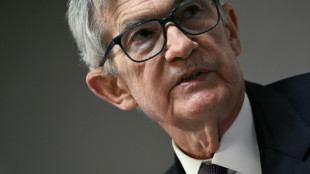
-
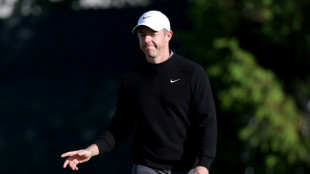 McIlroy moves on after Masters win to defend PGA Truist title
McIlroy moves on after Masters win to defend PGA Truist title
-
Spurs star Maddison ruled out for rest of season

-
 OpenAI offers to help countries build AI systems
OpenAI offers to help countries build AI systems
-
Germany's new govt orders border police to reject most asylum seekers
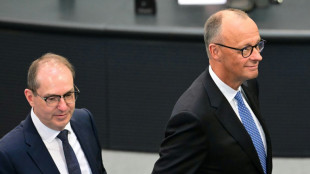
-
 USA hosts Pacific Nations Cup finals with eye to '27 Rugby World Cup
USA hosts Pacific Nations Cup finals with eye to '27 Rugby World Cup
-
Six Bulgarians face long UK jail terms for spying for Russia
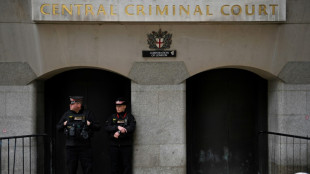
-
 'Hitman' Sharma: Big-hitting leader of India's cricket dreams
'Hitman' Sharma: Big-hitting leader of India's cricket dreams
-
Wales fly-half Anscombe signs for French club Bayonne

-
 Alphabet's share price plunges on traffic drop testimony
Alphabet's share price plunges on traffic drop testimony
-
Amorim eyes European glory with 'worst' Man Utd team in Premier League history
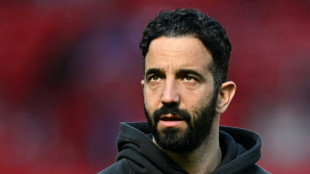
-
 Pink smoke signals in Rome call for women priests
Pink smoke signals in Rome call for women priests
-
Utah's NHL team selects Mammoth as nickname

-
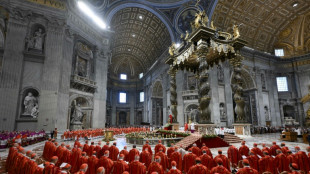 Cardinals locked inside Sistine Chapel as conclave begins
Cardinals locked inside Sistine Chapel as conclave begins
-
South Africa launches reform of derelict municipalities
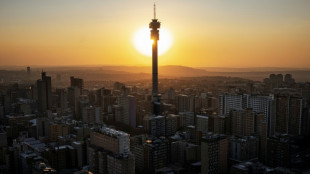
-
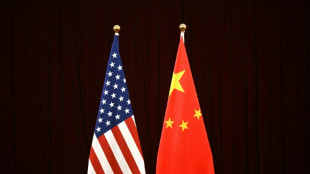 Chinese stocks, dollar rise before trade talks, Fed move
Chinese stocks, dollar rise before trade talks, Fed move
-
Serbian leader Vucic defies EU with Russia visit
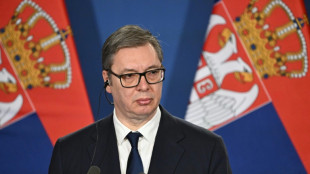
-
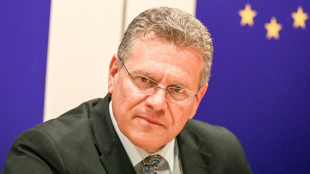 EU trade chief says accelerating free trade talks with Asia
EU trade chief says accelerating free trade talks with Asia
-
Conference League glory would prove Chelsea are back: Maresca

-
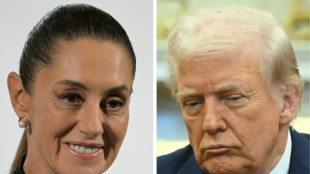 Sheinbaum says Mexico will defend free trade deal with US, Canada
Sheinbaum says Mexico will defend free trade deal with US, Canada
-
UN experts warn of 'annihilation' in Gaza amid Israeli strikes

-
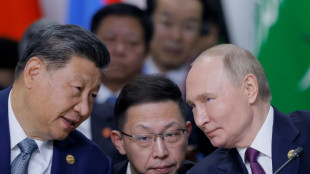 China's Xi lands in Moscow to beef up 'no limits' Putin partnership
China's Xi lands in Moscow to beef up 'no limits' Putin partnership
-
Finnish fighter jet crashes in Arctic town, pilot ejected
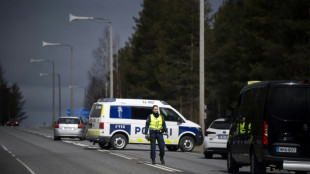
-
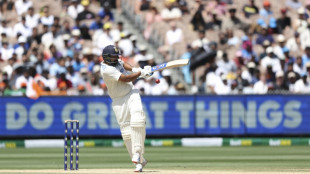 India captain Rohit Sharma announces retirement from Test cricket
India captain Rohit Sharma announces retirement from Test cricket
-
South African sprinter Simbine shrugs off 'nearly man' tag


Four years on, Salvadoran 'dictator' Bukele basks in gang war glory
In his four years as president, Nayib Bukele has shaken up El Salvador: consolidating power, making Bitcoin legal tender and waging a "war" on gangs that's earned him opprobrium from rights groups but adoration from a crime-fatigued nation.
As he gears up to contest a second term in February 2024, the 41-year-old president, who adopted the label "Dictator of El Salvador" in an ironic nod to critics, is basking in sky-high approval ratings.
Brushing aside two establishment parties to sweep to victory in 2019 elections, Bukele, who assumed office on June 1 of that year, stuck to his promise to tackle one of the world's highest murder rates, jailing tens of thousands of suspected gang members along the way.
To house them, he had the largest prison in the Americas built in a matter of months, a 40,000-person complex that more than doubled the country's penitentiary capacity.
The murder rate plummeted.
Bukele's first year in office, the poverty-stricken Central American country had 38 murders per 100,000 inhabitants.
In 2020, that number was less than eight.
Bukele's main achievement has been "security, the dismantling of gangs," economist Carlos Acevedo, a former central bank president, told AFP.
This, in turn, "has really generated a new climate where we begin to see a revitalization of the productive fabric of microenterprises."
Small business owners, street vendors and residents alike celebrate their new-found freedom from drug-dealing gangs that demanded protection money and fought bloody turf battles.
Among them is Cristina Arevalo, 71, who was forced to close her small shop on the outskirts of the capital San Salvador several years ago due to nonstop gang activity in her neighborhood.
"With the security we are experiencing, I will soon reopen, because I will no longer be extorted," she told AFP.
Polls indicate that nine out of ten Salvadorans support Bukele's assault on gangs which formerly controlled 80 percent of the country, according to the government.
- Alarm -
On the other hand, rights groups, the United States and the United Nations have all expressed alarm about arbitrary arrests, inhumane prison conditions and growing authoritarianism in the country.
Shortly after taking office, Bukele ordered heavily armed police and soldiers to storm a then opposition-led parliament to intimidate MPs into approving a loan to finance an anti-crime plan.
Bukele's New Ideas party and its allies subsequently won a majority in the legislative assembly.
Parliament then replaced the five judges of the Supreme Court's highest body, the Constitutional Chamber, and the attorney general -- two institutions with which Bukele had clashed -- as well as a third of all the country's judges.
The refreshed Supreme Court later allowed Bukele to seek reelection despite the constitution's single-term limit.
"The government and the president have everything they need for reelection, not only because of popular support, but also because they control the majority of the institutions," public opinion studies expert Omar Serrano of Central American University told AFP.
Then in 2022, parliament approved Bukele's request for a state of emergency that expanded police powers and restricted civil rights.
This came after a particularly bloody weekend in March 2022 left 87 civilians dead at the hands of gang members, who Bukele has said must face "prison or death."
In the 14 months since, police have rounded up some 69,000 presumed gangsters, though about 5,000 were later released for a lack of evidence.
The mission of curtailing the gangs "has been achieved," said Carlos Carcach, a researcher at the El Salvador's Higher School of Economics and Business.
But it came at the cost of "implementing an emergency regime that implies the disappearance of the rule of law and supremacy of the constitution," he told AFP.
- Bitcoin gamble -
Another bold Bukele move was to make Bitcoin legal tender in El Salvador's dollarized economy -- the first country in the world to do so.
He insisted it would help revitalize a struggling economy despite warnings from experts and regulators about the cryptocurrency's volatility, potential impact on inflation and lack of consumer protection.
The currency plummeted in value and uptake was low in a population heavily reliant on remittances from some 3 million Salvadorans living abroad.
The adoption of Bitcoin "has been the most unpopular measure" of the Bukele government, said Serrano.
El Salvador's economy, according to the central bank, closed 2022 with growth of 2.6 percent and a projection of 2-3 percent growth for 2023.
S.Gregor--AMWN